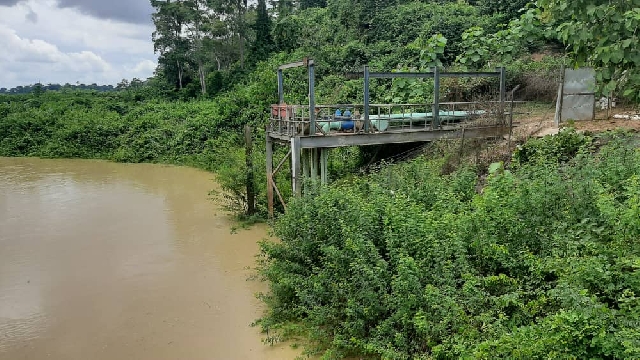
Obuasi: GWCL on why it cannot meet safe water supply needs of residents
The Ghana Water Company Limited (GWCL) has been explaining why it cannot meet the safe drinking water needs of residents in Obuasi and its environs as a result of activities of illegal miners (galamsey).
About 140,000 people are being deprived of safe drinking water in the Obuasi Municipality and its surroundings because of the menace of illegal small-scale mining (galamsey).
The GWCL says over 140,000 people in Odaso and Obuasi in the Ashanti Region have limited access to water on a daily basis due to the negative effects of illegal mining activities.
According to GWCL, it has drastically reduced the volumes of water supplied to households in these areas as illegal mining activities directly affect its production and general operations.
Citing the current situation in Odaso and Obuasi, the company said it has reduced its output from four million gallons of water a day to just a million gallons.
Speaking at a forum on water under the auspices of the Israeli Embassy in Ghana, the Managing Director of the Ghana Water Company, Ing. Dr. Clifford Braimah, said the company’s operations have been severely hampered by illegal mining activities.
“Whatever happens to the resources has a direct impact on us at Ghana Water Company. ‘Galamsey’ is making us reduce the volumes of water that we can store in our reservoirs to abstract.”
“If you take Odaso for example, we were supposed to be doing four million gallons of water a day. What we can abstract now is 1 million gallons. 3 million gallons of water cannot be abstracted. Just on the raw surface, we are leaving out 140,000 people daily from getting water, so when we begin to complain about the scarcity of water, there are external forces affecting it.”
He added that, “We are unable to do the abstraction, and because of the turbidity levels, if you go to Odaso again, instead of us to record a 5% process loss so that we are able to inject into the system, the 95% of the water you abstract, we would have done 50% for clean water and would throw away more than 50%, but we have to also incur additional cost by changing the chemicals that we are using to a more expensive chemical, and so in Odaso we are able to generate 50% of what we abstract”.
Illegal mining activities have severely polluted several water bodies in some parts of the country, making the treatment of water by the Ghana Water Company more cumbersome and expensive.
